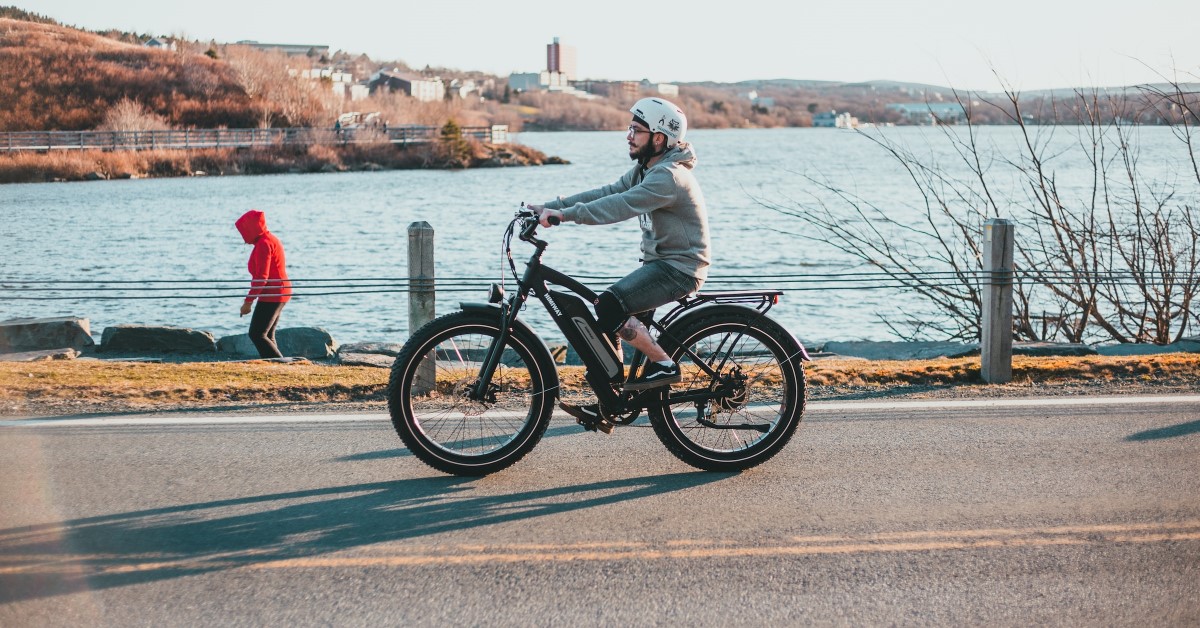I think you’re searching that Can Electric Bikes Go on the Highway?
Well!
You’re on right place because we already have worked for you. Electric bikes, often referred to as e-bikes, have gained immense popularity in recent years, offering a cleaner and more sustainable mode of transportation.
As e-bike technology continues to advance, many riders wonder whether these electric-powered two-wheelers are suitable for highway use.
In this article, we will explore the legal and practical aspects of electric bikes on highways, helping you understand the possibilities and limitations of taking your e-bike on the open road.
The Rise of Electric Bikes
Electric bikes represent a promising solution to modern transportation challenges. They combine the convenience of a traditional bicycle with the power of an electric motor, making commuting more efficient and eco-friendly.
E-bikes come in various shapes and sizes, from sleek city commuters to robust off-road models, making them versatile choices for riders with diverse needs.
Benefits of Electric Bikes
Before delving into the specifics of highway use, let’s first highlight some of the key benefits of electric bikes:
Eco-Friendly Transportation
E-bikes produce zero emissions, helping to reduce air pollution and combat climate change.
Cost-Effective
They are considerably cheaper to operate than cars or motorcycles, with low electricity costs and minimal maintenance.
Physical Fitness
E-bikes encourage physical activity while providing assistance when needed, making them a great option for those looking to stay active.
Efficient Commuting:
Electric bikes are ideal for short to moderate commutes, helping riders save time and avoid traffic congestion.
Electric Bikes and the Highway
The concept of taking an electric bike on the highway is intriguing, but it’s important to understand the limitations and regulations involved.
Highways are designed for fast-moving motorized vehicles, and e-bikes have some inherent limitations that might restrict their use in such environments.
Legal Considerations
The first and most critical aspect to consider is the legal framework surrounding e-bike usage on highways. These regulations can vary significantly from one place to another, so it’s essential to familiarize yourself with local laws and guidelines. In many countries, including the United States, electric bikes are generally classified into three categories:
- Class 1 E-Bikes: These e-bikes are equipped with pedal-assist mechanisms and have a maximum assisted speed of 20 mph. They are usually allowed on roads and highways unless local regulations specify otherwise.
- Class 2 E-Bikes: These bikes have a throttle that allows them to be powered without pedaling, but they are also limited to a maximum speed of 20 mph. Their highway usage is often regulated and may require a specific license.
- Class 3 E-Bikes: These e-bikes can reach speeds of up to 28 mph with pedal assistance. They are generally subject to stricter regulations and may not be allowed on highways or high-speed roads.
Before considering taking your e-bike on the highway, research your local laws and regulations to ensure you are in compliance. In many cases, it may be prohibited to operate e-bikes on highways where the speed limit exceeds the e-bike’s capabilities.
Practical Limitations:
Apart from legal considerations, there are practical limitations to be aware of when it comes to electric bikes on highways:
- Speed: Most e-bikes are not designed for highway speeds. While Class 3 e-bikes can reach higher speeds, they may still struggle to keep up with the flow of traffic on fast-moving highways. This can be dangerous and uncomfortable for the rider.
- Safety: Highways are often crowded with heavy traffic and large vehicles. Riding an e-bike in such an environment can be risky, especially if the bike lacks the stability and safety features found in motorcycles or cars.
- Range: Electric bikes have limited battery capacities. Long highway rides can quickly drain the battery, leaving you stranded. It’s crucial to calculate your e-bike’s range and plan your route accordingly.
- Hills and Inclines: Highways frequently have steep inclines, which can be challenging for e-bikes, especially those with lower power motors. Climbing steep hills at highway speeds may not be feasible for many e-bike models.
- Wind Resistance: Riding an e-bike on the highway means battling wind resistance, which can consume more battery power and make the ride less efficient.
- Comfort: Highway riding can be physically demanding due to vibration, noise, and the need for high-speed stability. Most e-bikes are not designed with these factors in mind.
In summary, while electric bikes are a fantastic mode of transportation for many purposes, they are not typically suitable for highway use due to their legal limitations and practical constraints.
Alternatives for Long-Distance Travel
If you are looking for an eco-friendly and efficient way to cover long distances, there are alternatives to consider:
- Electric Motorcycles: Electric motorcycles are specifically designed for highway use, with higher speeds and greater power. They can cover long distances at highway speeds, making them a better choice for intercity travel.
- Electric Cars: Electric cars offer a comfortable and convenient mode of long-distance transportation without the limitations of electric bikes. They have more significant range capacities and are highway-ready.
- Public Transportation: For longer journeys, public transportation, such as buses and trains, is often the most practical and eco-friendly option. It reduces the need for personal vehicles and minimizes environmental impact.
- Car Rentals: For occasional long-distance travel, renting a car may be the most convenient option. Many car rental companies offer electric and hybrid vehicles for eco-conscious travelers.
Conclusion – Can Electric Bikes Go on the Highway?
Electric bikes have transformed urban commuting and offer a multitude of benefits, including eco-friendliness and cost-effectiveness.
However, when it comes to highway use, electric bikes face significant limitations and regulatory hurdles that make them impractical for long-distance, high-speed travel.
Before attempting to ride an electric bike on the highway, it’s essential to thoroughly research and understand local laws and regulations, as well as the practical constraints of your e-bike model.
For those seeking an eco-friendly and efficient mode of transportation for highway travel, options like electric motorcycles, electric cars, public transportation, or car rentals may be more suitable choices.


